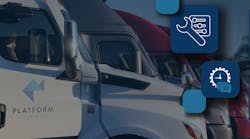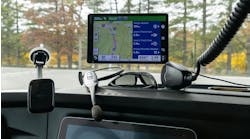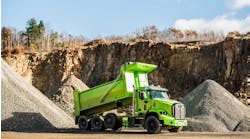Platform Science, an application platform for transportation, recently raised $125 million in growth capital to accelerate innovation in the commercial transportation sector. Key strategic investors included C.R. England, Cummins, Daimler Truck, Paccar, RyderVentures, and Schneider. New financial investors included Activant Capital, BDT & MSD Partners, and Manhattan Venture Partners. Platform Science also had strong participation from existing investors, including 8VC, NewRoad Capital Partners, and Prologis Ventures, underscoring their commitment to the company’s growth plans.
“By including our software as a native component of the vehicle, we’re making it as easy for developers to build applications for drivers and fleets as it is to build them for smartphones. By doing so, we expect innovation to change transportation in the same way smartphones have changed our lives,” said Jack Kennedy, Platform Science co-founder and CEO. “This injection of capital enables us to accelerate our growth and capitalize on the opportunity we have to exponentially drive innovation in the commercial transportation sector.”
See also: Motive and Platform Science enhance FirstFleet’s safety and efficiency
According to Platform Science, its Virtual Vehicle is the first application platform that can unlock all signals at the edge directly on the truck without any aftermarket hardware installation. It is being deployed by many of the world’s largest commercial trucking fleets, including C.R. England, Covenant, Schneider, and Werner Enterprises. Fleets can leverage a best-in-class driver experience integrating an intuitive application ecosystem, including solutions made by telematics providers, third-party developers, OEMs, shippers, and fleets themselves.
“Platform Science, together with its partners, is building an industry standard that will transform transportation,” said Dan Bitar, managing director and co-head of MSD Growth, BDT & MSD Partners. “We look for opportunities that are driving impact at scale, and Platform Science is doing exactly this. We are strong believers in the team and their vision, and we are excited to partner with a company that is helping to modernize one of the most important components of GDP.”
Platform Science’s Virtual Vehicle has quickly become a standard for connecting vehicles to all parts of the logistics ecosystem, generating over a trillion data points across 6 billion miles logged and resulting in 15 billion API calls annually.
Virtual Vehicle was developed in collaboration with Daimler Truck North America, Navistar, Paccar, and other leading OEMs as a solution for a flexible, consistent, cost-effective, open software platform that lives natively on a vehicle.



